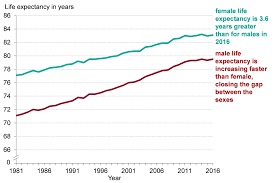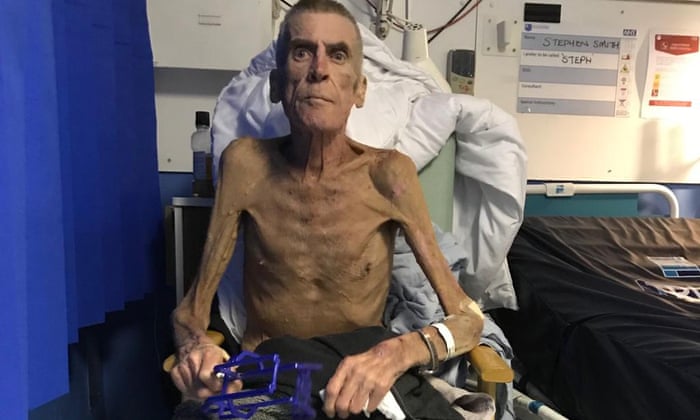Jobcentre Staff Were Taught to Inflict ‘Psychological Harm’ On the Unemployed Claims Journalist
Tuesday 13 July, 2021 Written by Sophie K Rosa, Novara Media, Foreward Simon Collyer
UK GOVERNMENTS TREATMENT OF CLAIMANTS CHALLENGED - We came across this excellent article below, which exactly reflects how the Tory government have treated benefit claimants since 2012. How deliberate and cruel policies have led to so many deaths and suicides as a result of government effort aimed at making life on welfare as wretched as possible.
The Boris Johnson led government plans to cut Universal Credit, by removing the £20 uplift, but at a time of rising prices, this will make life impossible for those trying to survive. The PM’s empty rhetoric about ‘high-paying jobs’ is irrelevant to people facing imminent homelessness and/or starvation if these cuts go ahead.
The numbers of people that died as a result of cutting the benefits bill by one-third since 2012 is hard to tally up. Labour spokesperson and Shadow Work & Pensions minister Debbie Abrahams MP said that the 90 deaths talked about by the government are 'the tip of the iceberg'.
Black Triangle, a Scottish organization had been keeping a tally of those who died. Thousands potentially, not hundreds, and certainly not tens of people, would be needed to perish for the growth in life expectancy to be reversed, as it has done.

Image: You can see here how pre-Covid that the average life expectancy that has been growing for decades / centuries has been reversed since 2012. Child poverty rates have increased greatly.
From: Sophie K Rosa, courtesy of Novara Media.
Top-down pressure and 'benefit scrounger' narratives encouraged staff to be 'cruel and inhumane'.
During this period, Redman tells Novara Media, a combination of “top-down pressures mediated through targets [and] the hierarchy of a bureaucracy,” sometimes along with “benefit scrounger” narratives, pushed employment officers to act in “cruel or inhumane” ways, carrying out “policies which [had] potentially violent outcomes for service users”.
In the wake of the 2008 financial crash and ongoing recession, in 2010 the Conservative-Liberal Democrat government enacted an austerity programme that saw huge cuts to the social security system. Then-prime minister David Cameron pronounced a ‘broken Britain’, where state support “tolerated, indulged – sometimes even incentivised” apparent ‘immorality’ and ‘irresponsibility’. He said the welfare system as it stood led to “people thinking they can be as irresponsible as they like because the state will always bail them out”.
This stigmatisation of poverty as immorality, claim Redman and Fletcher, was woven through the benefits system during the austerity years by design, resulting in more hostile and punitive treatment of claimants by employment services workers. In a related earlier study, the Welfare Conditionality project found that post-2010 austerity reforms increased poverty, exacerbated ill health and discouraged people from accessing state support, and numerous studies linked increased jobcentre processes and benefits sanctions to increased rates of suicide.
Some employment officers who were interviewed for the research had “stigma-laden attitudes” about claimants, says Redman. Atherton, a filmmaker and fellow of the Royal Society of Arts, says that his experience of stigma at the jobcentre during the austerity years “contributed to [his] suicidal ideations”. He speculates that, over 2010-2015, workers who felt the way they were made to treat benefit claimants was unethical quit, and those who believed claimants were “scum welfare suckers” trying to “pull a fast one” became managers.
Under post-2010 reforms, employment officers had stricter targets for getting people off benefits and sanctioning them. The report’s interviewees described being under pressure from managers, and the overall workplace culture, to stop people’s benefits; one showed Redman a table on which “they put stickers … to represent how many different types of sanctions … they’d hit in relation to the target.”
‘Beaten-down drones in a depressing work environment’.
Callum – who became unemployed after a stroke – says that as a result of this punitive approach, “the jobcentre had an atmosphere of fear” during the so-called austerity years. “You could feel your blood simmering,” when you entered, he says. “The whole system was designed to get you off it.” On the one occasion when he made a mistake with his claim, he was “terrified” his money would be stopped.
Whilst receiving jobseekers’ allowance during 2010-2015, John was asked to complete a placement in the jobcentre itself, which he says gave him frightening insights into internal operations at the time. “One morning, built up in advance as a ‘treat’,” he tells Novara Media, “I shadowed people in the basement office, who were the local ‘benefits police’”. He was told by his supervisor that these workers were employed to do extensive background checks and surveillance on claimants “following a tip-off by a member of the public”. These investigations – designed to catch claimants out – he says, included accessing bank statements, undercover operations at local pubs, and tapping phones.
Atherton says that at the very beginning of the austerity programme, before the reforms came into effect, “I could walk into a jobcentre and know workers by name” who would deal with his case. He says that this face-to-face contact meant the claimant experience felt more humane, and meant he felt more “in control”. Gradually, however, in-person jobcentre appointments were replaced with phone calls, which he describes as “impossible”. Callum agrees, saying the telephone operator system felt hopeless, and the circuitous automated aspects of it made him feel like “even the automated system can’t be bothered with you”.
Many employment services workers, of course, do not agree with the way they are told to work. Some of the workers Redman and Fletcher spoke to for their research described how much the benefits system had changed during their often long careers, “from focussing predominantly on wellbeing and employment support, to meeting stringent performance targets”. Some workers said they left the work as a result of this culture change, or stayed but struggled emotionally.
One interviewee, says Redman, admitted to forcing terminally ill people and people with complex mental health problems into employment, even when it was clear they couldn’t function on a normal day-to-day level. The interviewee went on to describe how they would “break down in tears sometimes”, because of what they had to do, but they carried on doing it because they didn’t want to be seen as a weaker member of staff at performance meetings. Another interviewee spoke about how they pushed someone into work who then attempted suicide. Though often aware of the impact of their actions, Redman says the intense pressure to perform usually made workers press on with implementing harmful policies. “You always wanted your team to be the best team,” one worker told him.
John believes that most employment officers did not “relish their ability to punish,” but were rather “beaten-down drones in a depressing work environment, going through the motions”. Usually, he says, it wasn’t “the [worker] in particular that contributed to an ongoing doomy lack of self-esteem,” but “the system constantly reminding me [through its processes] that I was a shirker.
‘Our lives aren’t safe in Tory hands’.
Since 2015, sanctioning rates have gone down – but the benefits system overall is still shaped by reforms introduced from 2010. Historical evidence suggests that employment services play a pivotal role in the economy as “a crisis management institution”, says Redman, meaning the system “tends to become more punitive when there’s a period of economic recovery, to encourage people to get off benefits and to take up low paid jobs, which tend to be created more in a period just after a major crisis.” As such, Redman is worried how the already harsh system today will be reformed in the coming post-Covid, or post-lockdown, period – already, the Tories are rescinding the £20 uplift to Universal Credit.
Rather than a social security system of “arcane civil service procedures, endless appointments and a multitude of staff paid to oversee all this,” John would like to see the government implement universal basic income. He would like to see this policy adopted “on a compassionate basis”, as opposed to the prevailing narrative that “people who are out of work are scroungers”. He would also like to see more people accept that whilst most people on unemployment benefits may want to, or at least intend to, find work, a minority like him “genuinely cannot be bothered with regular work under a far-right government pushing hyper-capitalism.”
Most of all, says Callum, “we have to make the case that” public spending needs to go up, and that “our lives aren’t safe in Tory hands.
<end>

Image: Shocking images like this one could become familiar if UK government cuts to welfare go ahead.
ABC Comment, have your say below;

Leave a comment
Make sure you enter all the required information, indicated by an asterisk (*). HTML code is not allowed.
Join
FREE
Here










